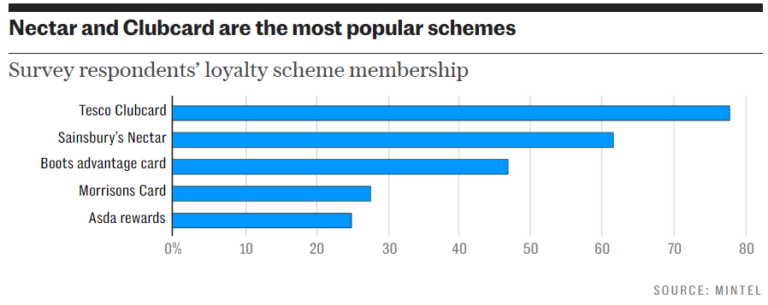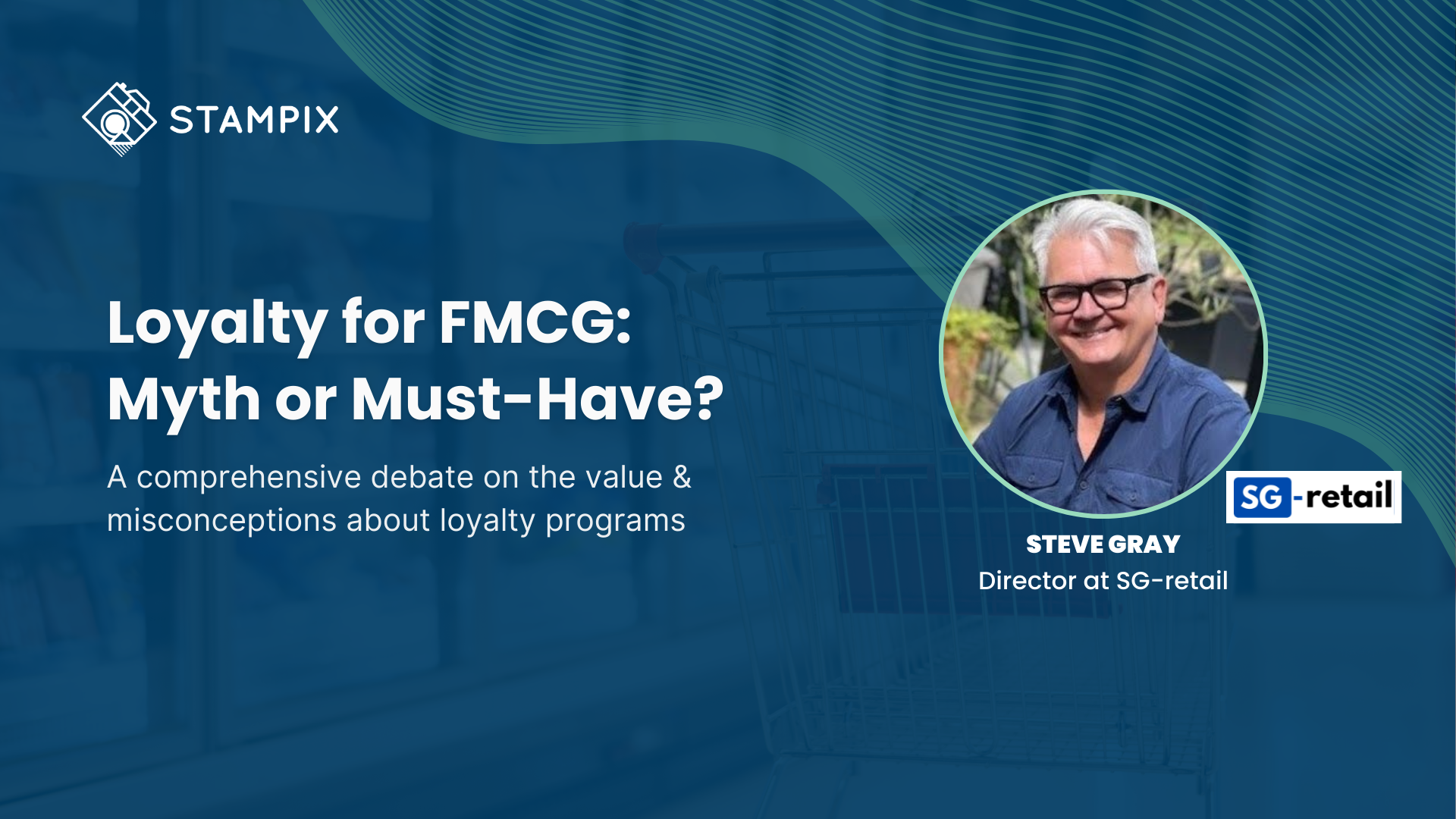Loyalty programs have long been a staple in retail, yet they have often been dismissed as ineffective by some marketing theorists, notably Byron Sharp who’s best-selling book How Brands Grow has a chapter titled “Why Loyalty Programs don’t work”. During our webinar with Byron Sharp, we heard Steve Gray, Director at SG-Retail and a specialist in retail media and loyalty, offer a more nuanced perspective. He argues that loyalty programs, when executed correctly, can be crucial to brand growth by enhancing both mental and physical availability, and providing valuable data that drives profitability and competitiveness.
It was our pleasure to host Steve and learn from his insights on our recent webinar Loyalty for FMCG: Myth or Must-Have.
Loyalty Programs: Beyond Traditional Metrics
Steve Gray acknowledges Byron Sharp’s well-known stance that brand growth stems primarily from acquiring new customers rather than nurturing existing ones. Sharp’s research suggests that loyalty programs are often inefficient and do not significantly impact consumer behaviour. However, Gray challenges this view by highlighting that loyalty programs are not just about increasing customer loyalty in the traditional sense, often measured as share of wallet. Instead, they serve as powerful tools for enhancing mental availability—keeping the brand top-of-mind—and physical availability—ensuring the brand is easily accessible.
Gray points out that loyalty programs can significantly contribute to a brand’s mental availability by creating constant reminders of the brand. For instance, loyalty cards, key fobs, and mobile apps act as daily triggers that reinforce brand recognition. With more than 21 million customers on its Clubcard programme, Tesco is often seen as the trailblazer in this area. Arguably, Clubcard became more recognisable than Tesco itself in some regions:
Clubcard was more famous than Tesco
Terry Leahy - Former CEO of Tesco
By embedding the brand into the daily lives of customers, loyalty programs help build a stronger, more lasting mental presence. Asda’s decision to launch their Rewards programme recognised that without one, their overall proposition wasn’t competitive enough.

The Strategic Value of Data
Another critical aspect of loyalty programs is the wealth of data they generate. The first-party data collected through these programs is incredibly valuable, not just for understanding existing customers but also for acquiring new ones. This data enables brands to segment their audience more effectively, tailor their marketing efforts, and ultimately enhance their competitiveness.
In the Q&A session following the webinar, Gray addressed concerns about digital ad fraud, noting that loyalty programs offer a fraud-free channel to reach both existing and potential customers. This direct line to consumers is invaluable in a landscape where digital advertising is increasingly plagued by bots and click farms.
The data-driven insights from loyalty programs are essential for developing targeted marketing strategies. Brands can identify heavy users, light users, and specific demographic segments, allowing for more personalised and effective marketing campaigns. This capability is especially beneficial in categories with distinct customer bases, such as pet food or baby products.
Loyalty programmes can also be inherently profitable in their own right. One of the largest coalition loyalty programmes in Europe, PAYBACK, continues to thrive under new owners over twenty years since inception, having been acquired by American Express for approximately US $585 million.
"Retailers Loyalty Programs are succeeding in many cases. One example is the data that is generated as a product of the program. Data that is also fantastically available, not only to the retailer to improve their overall proposition and the running of the business, but also to the brands that they sell. As retail media is, it has become a thing that is growing and will continue to grow."
Steve Gray - Director SG-retail
How to Use Retail Media to Drive Brand Growth
Retail media, driven by detailed customer data from loyalty programs, has become a powerful tool for brand growth. After years of gathering data from their customers, supermarkets have opened the floodgates to a wave of retail advertising. Goldman Sachs expects the UK retail media market to be worth £2bn this year, while industry body WARC says the format is already outpacing growth in social media ad spend.
Supermarkets like Tesco and Sainsbury’s are leading the way, with Tesco installing 1,800 advertising screens and Sainsbury’s planning to double its in-store screens. Retail media allows brands to increase physical availability through prominent in-store placements and digital shelf visibility, leveraging data from over 21 million Tesco Clubcard users and Sainsbury’s Nectar program.
This data-driven approach ensures that brands can reach a wide audience cost-effectively, emphasising the importance of broad reach over frequency. By targeting new and light users, rather than just loyal customers, retail media helps attract new customers – essential for brand growth. Sainsbury’s, for example, expects £100 million in incremental profits from its Nectar 360 business by 2027, demonstrating the significant impact of retail media on brand expansion.
Conclusion: Loyalty Programs as a Strategic Asset
Steve Gray’s insights offer a way to reconcile the laws from How Brands Grow with the notion that loyalty programs are a valuable asset for brands & retailers. By enhancing mental and physical availability, providing valuable customer data, and driving profitability, loyalty programs play a crucial role in modern retail strategy. While customer acquisition remains essential, loyalty programs offer a unique way to achieve exactly that, ultimately supporting brand growth.
This articles concludes our series inspired in the webinar “Loyalty for FMCG: Myth or Must-Have?”. If you have not watched the webinar yet, click in the button below and enjoy it! Soon, we will provide a full White-Paper with content from the panel.
SIGN UP FOR THE WHITE PAPER
We didn't have time to answer all questions from the audience during the webinar. Subscribe to our Newsletter to receive an exclusive White Paper with the key insights and answers from the panelists.


